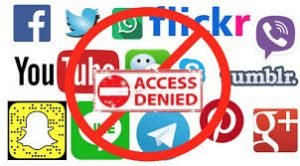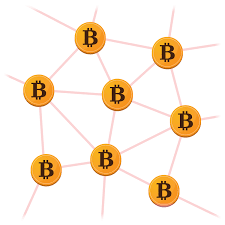Quiet Revolutions in Money and Social Media
There are a couple quiet revolution taking place. Although one is about money and the other is about social media, in my mind they are completely interrelated...

Money
Money as a medium of exchanging value should be simple- you give me a sack of potatoes, I give you a gold coin. You give me a gold coin, I take care of your sheep. Simple. Because we both know the value of a gold coin, we don't need to know each others' identity, and one gold coin is as good as another. In the face of this simplicity, the current banking system seems ridiculous- why should a bank need to know all your personal information for the privilege of borrowing your money? And why should the government need to know about every penny in and out of your pocket?
As Anton Antonopoulos has said, "We've had the separation of church and state. Now it is time for the separation of money and state."
This is not to endorse complete anarchy or refuse to pay any taxes, but when so many banks and governments prove themselves corrupt and incompetent, maybe it is time to reconsider the situation.
Here are a few examples of how money is not working for people:
- My friend in Europe needs to send about €10,000 to Bangladesh. The bank refuses to send more than €3,000 per week. Whose money is this again?
- In Cyprus quite recently, the government literally stole money from the citizens bank accounts. Needless to say, the bank was complicit in this. Now that's what I call bank robbers!
- In India in 2016, the government declared legal tender bills, useless overnight, crippling the day-to-day cash economy. My friend could not find enough cash for more than one meal per day.
- Despite enormous oil wealth, the mafia government of Venezuela continues to inflate their currency and restrict foreign exchange. This directly leads to people starving.
- The United States continues to pump an endless supply of money out of the sewers beneath Washington, D.C. This has the effect of inflating the USD at about 2 % per year. Unfortunately wages are not going up at this rate. Those saving for their retirement will discover the true meaning of compounded inflation as opposed to compounded interest, when their savings have halved in value 30 years later.
- Spain has declared any cash transaction over €1,000 to be illegal. If I were to pay you €1,000 in cash for your car, that would be illegal! Whose money is this again?
If you cannot buy a car with it, if you cannot send it overseas when you want to, if the government can take it from your bank account or declare it little better than toilet paper overnight, then whose money is it really?

Social Media
Just as our identities have been unnecessarily tied to money, so too social media channels have been incrementally demanding more personal information from us. This information has been sold to advertisers to numb our brains with ads and entice us into giving them "our" money. Yes social media such as farcebook (sic.) is "free" to use, but the price is selling our souls (okay, a bit dramatic). More realistically, in the business model of these companies, the customers are the advertisers, and we are the product they are selling. Well some of us are tired of being products sold to the highest bidder so they can advertise trinkets to us. Then again, on the plus side, we do get to watch an endless variety of cat videos!
As well as demanding and selling our personal data, it turns out that we do not even own the content we contribute to these platforms. Accounts on Twitter and Facebook get deleted when they rock the boat. Longtime Youtubers are having their channels completely demonetised. And tweets, posts and videos are being deleted and censored on all of these. Whose social media is it again? If they can delete it and they can sell it, it's pretty obvious who owns it- no need to read the fine print of the terms of service. But thanks for the cat videos!
"I'm not saying the CIA created facebook, I'm just sayin'..." ;)
Haha! Conspiracy theories aside, even Mark Zuckerberg has admitted to calling Facebook users "dumb fucks" for trusting his company with their' private data. While he has regretted the turn of phrase, our Big Brother has not rolled back any gathering of personal data, instead saying that these are "These are the new social norms, now."

The revolutions
There used to be a time you could give your money to whoever you wanted because it was your money.
There used to be a time you could send a letter to whoever you wanted. You could choose to sign your name or not sign your name, because it was your name. Now some of us are again doing these again, only digitally. Now when I want to send money directly to someone, I send Bitcoin. They are my coins and I choose to send them. Now when I want to write a blog post, I use the name Rafa or The Worldly Man. I choose whether to share my name or not.
This is the connection between money and social media- both are undergoing revolutions in privacy.We are retaking control of our money and our identities so that we are once again sovereign over these.
Sovereign is often used to mean lording over like kings and queens. In this case, we are not asking to be kings, but we are demanding sovereignty over our money and our names. Because if we do not own these, then who does? And who is sovereign over them? Or are we the property of governments and corporations- modern day slaves?
We need to honestly ask ourselves, 'are we using money- or is it using us?', and 'are we using social media- or is it using us?'
Revolutionary platforms
Fortunately, there are great innovations happening in both of these spheres. Within the sphere of money, cryptocurrencies are the hot new thing. There is the well known bitcoin, but also many others with stronger focusses on privacy and transaction speed among other features. If you are new to this and want to dip your toe in by buying some Bitcoin, the most user-friendly gateway is through Coinbase. Their whole interface is intuitive in a way like paypal. Overall, the whole cryptocurrency space is still young but growing rapidly and I'm excited to have invested fairly early and to watch it grow in technology, adoption and value.
Within the sphere of social media, channels are opening up with the promise of refraining from censorship and not requiring to know what you had for breakfast. Gab.ai is one of these. There are also platforms which have begun to reward content creators to acknowledge who actually brings value to their platform. Minds is one of these.

The King of Crypto and Social
There is one platform that brings both spheres of cryptocurrency rewards together into one user-empowering experience- this is onG.Social. By putting this social media dashboard onto not one but two blockchains, onG is able to simultaneously protect users' privacy while avoiding censorship, and reward contributors with multiple cryptocurrencies. This platform is young and still in beta, but if you read their white paper and roadmap, you can see a very bright future ahead for the platform and its' early adopters.
This is not an advertisement. I am just excited about onG and I can't help but share that excitement. If you want to learn about onG.Social's ICO and roadmap, the full details are at ongcoin.io.

Be an early adopter
Remember in the early 90's when Apple computers used to be just for snobby computer geeks? Now they're the largest company in the world and totally mainstream. Remember how the internet was just a toy for tech wizards in the early days? Now you're reading this on the internet. No need to mention mobile phones.
I've learned from my father who was a super early adopter for all of these- he has this knack for seeing emerging trends and jumping on the band wagon early. He was the first person in our country to think that the licence plate "2000" might be very valuable one day, so he bought it in the early 90's. He's not a genius, he just smells the future.
I'd like to think that i've inherited a whiff of his gift, and right now it's pointing to cryptocurrencies and liberated social media platforms. Do your own research, follow your nose, but don't follow the masses- lead them! Be an early adopter and evangelist of user-empowering innovation.